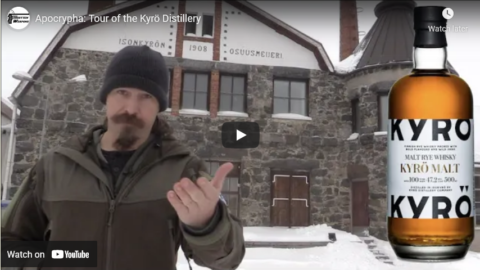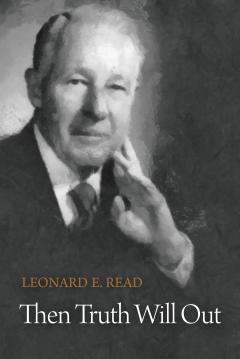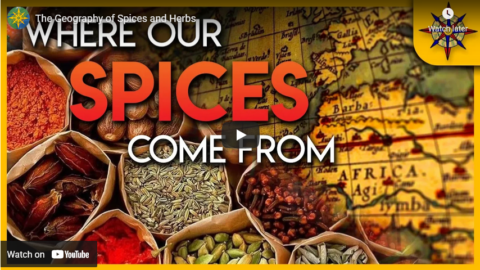Forgotten Weapons
Published 21 Mar 2021While I was in Finland for Finnish Brutality 2021, I took a day to hitch a train ride up to Isokyrö, about 400km northwest of Helsinki. The Kyrö distillery was founded there in 2012, making single malt Finnish rye whiskey and several varieties of gin.
Their own video does a fine job describing the origins of the distillery:
But I wanted to get a look at the production process — and it’s impressively well set up! The rye is made in a pair of imported Scottish pot stills, and the gin uses a combination of pot and column distillation. They were kind enough to give me a tour of the whole place, so let’s have a look around!
They are distributed throughout the EU, and to a limited extent in the US.
(Apocrypha is a behind-the-scenes periodic series normally only available to Patreon supporters of Forgotten Weapons. Want to see more? Sign up to help support me directly at http://www.patreon.com/forgottenweapons)
March 22, 2021
Apocrypha: Tour of the Kyrö Distillery
Happy 75th anniversary to the Foundation for Economic Education
The Foundation for Economic Education was founded by Leonard E. Read in 1946:
This month marks the 75th anniversary of the Foundation for Economic Education. As I have benefitted from reading FEE’s literature for nearly two thirds of that time and contributed to it for decades, I feel that it is definitely worth celebrating.
This year is also the 50th anniversary of Then Truth Will Out, by Leonard Read, FEE’s founder, which he wrote involved “An assessment of position on the freedom road after passing the 25th milestone at FEE.”
That sort of compound anniversary — 25th, 50th and 75th rolled into one — suggests that we might profit from a look back at “the freedom road” with Then Truth Will Out.
I think it is one of Read’s best books, as attested to by the fact that four of the chapters in my Apostle of Peace, which discusses what I consider some of his best sustained arguments, derive from it. But in looking at the book now, I have been most struck by its opening chapter, “A Confession of Faith.”
- Perhaps the clearest way to identify one’s politico-economic position — at least in broad outline — is to reveal his idea of the ideal, that is, what he means by civilization or by a civilized people.
- To me, civilization can mean nothing less than a society of civilized people. So how is a civilized person to be identified?
- A civilized person, according to my ideal, must recognize that man is at once a social and an individualistic being.
- Thus, he must not only be self-responsible but, at the same time, understand that he owes to others no infringements on their rights.
- In a word, the truly civilized person is a devotee of freedom; he opposes all man-concocted restraints against the release of creative human energy.
- The civilized person realizes how incorrect it is to think of freedom as synonymous with unrestrained action.
- Freedom does not and cannot include any action, regardless of sponsorship, which lessens the freedom of a single human being. To argue contrarily is to claim that freedom can be composed of freedom negations, patently absurd.
- Unrestraint carried to the point of impairing the freedom of others is the exercise of license, not freedom. To minimize the exercise of license is to maximize the area of freedom.
- In order to achieve this ideal, it is necessary that there be an agency of society — representative of the social side of man — which codifies the thou-shalt-nots, the taboos, the destructive actions and enforces their observation.
- The fact that society’s agency — government — has a historical record of getting out of hand, of becoming destructive itself, only testifies to how far from civilized we are. It does not warrant discarding the idea of the ideal; it does not justify anarchy.
The Geography of Spices and Herbs
Atlas Pro
Published 4 Jan 2019Fun fact, I got the idea for this video while working as a cook in a Taco Bar.
Support me on patreon maybe? https://www.patreon.com/atlaspro
“Arroz Con Pollo” Kevin MacLeod (incompetech.com)
Licensed under Creative Commons: By Attribution 3.0 License
http://creativecommons.org/licenses/b…
QotD: Signalling
One of the many concepts that has entered the mainstream from the Dissident Right is signalling. Its first appearance came as criticism of social justice warriors, who were signalling their virtue by opposing someone or some thing, real or imagined. Virtue signalling is not new. It has probably been a part of human society since people began to settle into agricultural communities. Scipio Africanus, the great Roman general, who defeated Hannibal at Zama, was also famous for his virtue signalling.
These days, you will hear guys on the alt-right talk about counter-signalling. The easiest example of this is the newly minted rich guy going out and buying expensive display items, like cars or gaudy homes. NBA players are prone to this. They want to signal their wealth by acquiring highly visible, expensive items. An old money guy, in contrast, counter-signals by living in an old farmhouse that has been in the family for generations and driving a 40 year old Saab. He’s the sort of rich that feels no need to advertise it.
Signalling is a basic human trait. We all do it to one degree or another. Walk into a prison and you will see an array of tattoos on the inmates. These will signal gang affiliations, time served in the system, facilities in which the inmate has served and the individual’s violence capital. That last part is an important part of keeping the peace. To civilians, a face tattoo is always scary, but in jail, the right neck tattoo can tell other inmates that they are in the presence of an accomplished killer for a particular prison gang.
Virtue signalling and danger signalling are the easiest to understand, but people also use verbal and non-verbal signals to indicate trust or test the trustworthiness of others. A criminal organization, for example, will have a new member commit a pointless crime to demonstrate their trustworthiness. This is not just to sort out police informants, as is portrayed on television. It’s mostly to ascertain the willingness of the person to commit to the life of the organization. It’s hard to be a criminal if you will not commit crimes.
Outlaw biker culture is a good example of the use of signalling to establish trust relationships. Bikers have always, for example, adopted Nazi symbols as part of their display items. Bikers are not sitting around reading Julius Evola. What they are doing is signalling their complete rejection of the prevailing morality. By adopting taboo symbols and clothing, the outlaw biker is letting other bikers know his status, as much as he is letting the squares know he is a dangerous guy, who should be avoided.
The Z Man, “Codes of the Underworld”, The Z Blog, 2017-07-26.






